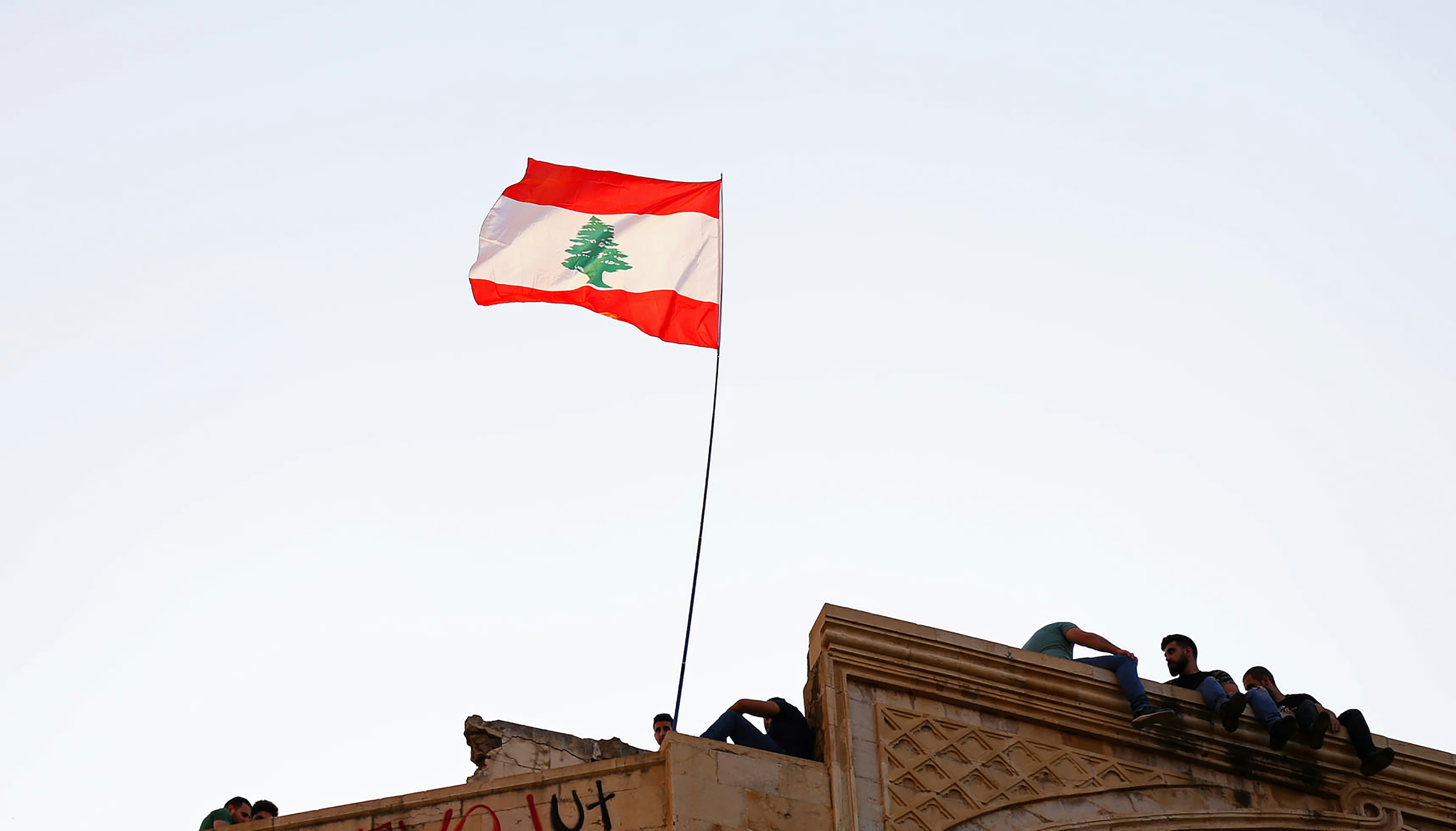Aid without state capacity? Why Lebanon’s post-war reconstruction hinges on institutional reform
MPP student Gaelle Abi Khalil sets out a comprehensive blueprint for successful post-war reconstruction.

Last August, few could have imagined that Lebanon—under Hezbollah’s tightening grip for over a decade, a prolonged presidential deadlock, and mired in one of the world’s worst economic crises since the 19th century—would six months later find itself with the Army’s Commander-in-Chief as President and the former head of the International Court of Justice as Prime Minister-designate.
This abrupt political shift, a turning point in the country’s political trajectory, unfolded amid significant regional developments, starting with the Israel-Gaza war and its reverberating shockwaves across the region. A 'new Middle East' seems to be emerging around two intertwined dynamics: firstly, Israel’s repositioning within the region, and secondly, the rollback of Iran's so-called 'axis of resistance,' including the sudden fall of the Assad regime in Syria. Central to these developments was Israel’s devastating war on Lebanon, the deadliest and most destructive conflict between Hezbollah and Israel to date, claiming over 3,000 lives and structural and economic losses estimated at $8.5 billion+ by the World Bank. Consequently, post-war reconstruction and recovery are among the most pressing items on the new leadership’s agenda.
Aid is contingent on a political course of action
Lebanon’s post-war reconstruction is heavily dependent on foreign assistance, particularly as its five-year economic collapse continues to unfold. However, two months into the ceasefire, not a single penny has been pledged for this purpose—a stark contrast to the donor response following the 2006 war. Back then, Lebanon secured over $2.3 billion in donor pledges, with Gulf states committing major funds even before the end of hostilities, and Western donors pledging $1.2 billion just two weeks after the ceasefire, covering the estimated cost of reconstruction.
At the 2024 Paris conference held last October and led by French President Emmanuel Macron, $1 billion was pledged, with $800 million designated for humanitarian relief and $200 million for security. But no explicit commitments for reconstruction have been made. The World Bank has expressed its willingness to support infrastructure rebuilding and is currently conducting a damage assessment.’ and various Arab and Western states have indicated their readiness to assist through diplomatic engagements with its new leadership, yet the country has not seen any concrete financial commitments.
The flow of aid to Lebanon is contingent on the formation of a government with clear political reforms. More critically, growing pressure is being placed on the Lebanese state to enforce the ceasefire and curb Hezbollah’s influence both within the country and the government. Arguably, donors are also closely monitoring whether the cessation of hostilities will hold. Complicating matters further, the key affected areas—Hezbollah strongholds in southern Lebanon, the Bekaa, and the southern suburbs of Beirut—raise difficult questions about the potential risk of aid diversion.
Foreign assistance must be closely monitored—not just by donors but, more importantly, by state institutions—to ensure it reaches affected civilians. But once aid is finally pledged, what preconditions and challenges must be addressed to ensure its effective and transparent allocation?
A shift in donor perspective: working with, not around, the state
Following the Beirut port blast in 2020, a dominant narrative shaped the aid landscape in Lebanon: donors sidelined the state, and prioritised Civil Society Organisations (CSOs) on the grounds that state institutions were corrupt and inefficient in service delivery. However, this approach had clear limitations; reconstruction efforts were fragmented, managed by multiple organisations with little coordination, and lacked robust mechanisms for monitoring and accountability.
While CSOs have historically played a vital role in immediate relief efforts, ensuring accountability and third-party monitoring, they cannot replace the functions of a state. Given the scale of the task at hand, efforts must be coordinated under a state-led framework with clear oversight mechanisms. Bypassing the state risks entrenching Lebanon’s governance failures rather than addressing them.
The importance of the state’s role in reconstruction was clearly echoed in the inaugural speech of President Joseph Aoun where he committed to rebuild what was destroyed during the war ‘in a transparent manner’. Yet how can a country, with institutions weakened by economic collapse, a hiring freeze, and chronic governance issues, undertake such an effort?
Bolstering state capacity as part of post-war reconstruction
Working with the state must begin by empowering a dedicated body to oversee and monitor reconstruction efforts. Existing structures like the Disaster Risk Management Unit could serve as a foundation. Expertise from the civil service should also be leveraged. In parallel, efforts should extend to strengthening overall state institutions to ensure a more effective and accountable recovery process.
The change in leadership and the formation of a new government send strong, positive signals that a conducive environment is being put in place to implement tangible reforms. The composition of the Council of Ministers, announced just last Saturday, further reinforces this signal.
While donors have prioritised bolstering the Lebanese Armed Forces —evidenced by the $800 million pledged at the Paris conference and the additional €65 million committed by the European Union last January— to ensure internal stability, potential assistance must incorporate similar pledges to reinforce state institutions. Though security assistance remains crucial for stability, institutional strengthening is equally vital to prevent aid diversion, foster economic resilience, and lay the foundation for sustainable recovery. This approach is essential to preventing a repeat of past inefficiencies, where aid distribution was fragmented and lacked oversight. By investing in state institutions, donors can help Lebanon seize the window of opportunity created by the change in leadership and move beyond emergency relief toward long-term stability. Strengthening governance structures will also mitigate the risk of aid diversion while reinforcing the state’s ability to deliver services equitably.
To successfully channel aid through state institutions while ensuring transparency, Lebanon and its donors must establish a robust aid governance framework. This requires a unified reconstruction strategy, led by the government, in coordination with international actors, and supported by clear accountability and oversight mechanisms. Third-party CSOs should monitor aid disbursement, while public reporting mechanisms should be put in place to enhance transparency and ensure citizen access to data and progress reports. This is crucial to fostering public trust and donor confidence.
Ultimately, reconstruction aid must be funnelled through a reformed and accountable state apparatus. Only then can it effectively reach affected communities and contribute to Lebanon’s long-term political and economic resilience.
"… aid must reach the civilians who, to this day, remain stranded amid the rubble of their homes."
Lebanon’s post-war reconstruction must move beyond the donor-driven approach that sidelined the state after the August 4 blast in 2020. Foreign aid should be channelled through state institutions to ensure transparent and accountable aid distribution while simultaneously strengthening state capacity.
Lebanon’s new leadership presents a critical window of opportunity to drive post-war reconstruction, bolster state capacity, and ensure foreign aid delivers a meaningful return on investment. A state-led approach is essential to coordinating aid effectively, managing it transparently, and fostering long-term stability—rather than exacerbating existing governance failures.
Most importantly, aid must reach the civilians who, to this day, remain stranded amid the rubble of their homes. While concerns over corruption and political interference are valid, circumventing state institutions risks further weakening their capacity, entrenching Lebanon’s vicious cycle of crisis and fragile recovery.
Gaelle is an Oxford Lebanon scholar.

